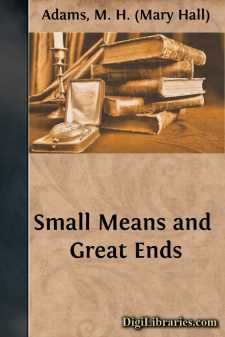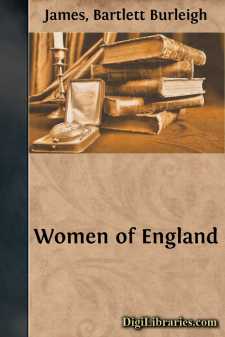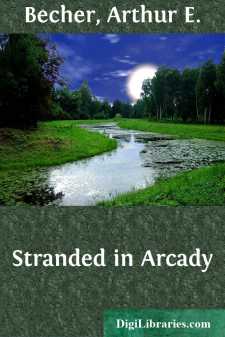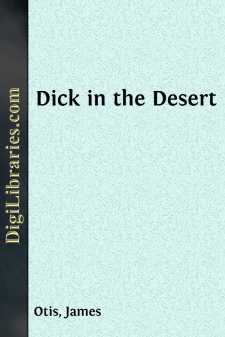Categories
- Antiques & Collectibles 13
- Architecture 36
- Art 48
- Bibles 22
- Biography & Autobiography 813
- Body, Mind & Spirit 142
- Business & Economics 28
- Children's Books 17
- Children's Fiction 14
- Computers 4
- Cooking 94
- Crafts & Hobbies 4
- Drama 346
- Education 46
- Family & Relationships 57
- Fiction 11829
- Games 19
- Gardening 17
- Health & Fitness 34
- History 1377
- House & Home 1
- Humor 147
- Juvenile Fiction 1873
- Juvenile Nonfiction 202
- Language Arts & Disciplines 88
- Law 16
- Literary Collections 686
- Literary Criticism 179
- Mathematics 13
- Medical 41
- Music 40
- Nature 179
- Non-Classifiable 1768
- Performing Arts 7
- Periodicals 1453
- Philosophy 64
- Photography 2
- Poetry 896
- Political Science 203
- Psychology 42
- Reference 154
- Religion 513
- Science 126
- Self-Help 84
- Social Science 81
- Sports & Recreation 34
- Study Aids 3
- Technology & Engineering 59
- Transportation 23
- Travel 463
- True Crime 29
Sort by:
by:
Grace Greenwood
CHAPTER I. Sketch of the Princess Charlotte—Her Love for her Mother—Anecdotes—HerHappy Girlhood—Her Marriage with Prince Leopold—Her Beautiful Life atClaremont—Baron Stockmar, the Coburg Mentor—Death of the PrincessCharlotte. It seems to me that the life of Queen Victoria cannot well be told without a prefacing sketch of her cousin, the Princess Charlotte, who, had she lived, would have...
more...
A CHANGE OF TREATMENT "Yes, I've sailed under some 'cute skippers in my time," said the night-watchman; "them that go down in big ships see the wonders o' the deep, you know," he added with a sudden chuckle, "but the one I'm going to tell you about ought never to have been trusted out without 'is ma. A good many o' my skippers had fads, but this one was...
more...
SMALL MEANS AND GREAT ENDS; OR, THE WIDOW'S POT OF OIL. BY JULIA A. FLETCHER. "Oh! how I do wish I was rich!" said Eliza Melvyn, dropping her work in her lap, and looking up discontentedly to her mother; "why should not I be rich as well as Clara Payson? There she passes in her father's carriage, with her fine clothes, and haughty ways; while I sit here—sew—sewing—all day...
more...
The Women of Prehistoric Britain It is to the unpremeditated contributions of savage and barbarous conditions of existence that we must look for those primal elements of social order which became fundamental in English life and character. Insomuch as those contributions are intimately connected with woman's life and work, they must be sought out and set in order if we are to trace the development...
more...
Nothing was further from my mind, when I discovered the "Release Drug" Relin, than the realization that it would lead me through as strange and ghastly and revealing a series of adventures as any man has ever experienced. I encountered it, in a way, as a mere by-product of my experiments; I am a chemist by profession, and as one of the staff of the Morganstern Foundation have access to some of...
more...
by:
Arthur E. Becher
THE MIDDLE OF NOWHERE At the half-conscious moment of awakening Prime had a confused impression that he must have gone to bed leaving the electric lights turned on full-blast. Succeeding impressions were even more disconcerting. It seemed that he had also gone to bed with his clothes on; that the bed was unaccountably hard; that the pillow had borrowed the characteristics of a pillory. Sitting up to...
more...
by:
Joyce Kilmer
The Twelve-Forty-Five (For Edward J. Wheeler) Within the Jersey City shedThe engine coughs and shakes its head,The smoke, a plume of red and white,Waves madly in the face of night.And now the grave incurious starsGleam on the groaning hurrying cars.Against the kind and awful reignOf darkness, this our angry train,A noisy little rebel, poutsIts brief defiance, flames and shouts —And passes on, and...
more...
by:
Margaret Burnham
CHAPTER I THE GREAT ALKALI "And so this is the great Nevada desert!" Peggy Prescott wrinkled her nose rather disdainfully as she gazed from the open window of the car out over the white, glittering expanse—dotted here and there with gloomy-looking clumps of sage brush—through which they had been traveling for some little time past. "This is it," nodded her brother Roy; "what do...
more...
by:
James Otis
CHAPTER I. DICK'S DADDY. etween Fox Peak and Smoke Creek Desert, on the western edge of the State of Nevada, is a beautiful valley, carpeted with bunch grass, which looks particularly bright and green to the venturesome traveller who has just crossed either of the two deserts lying toward the east. "Buffalo Meadows" the Indians named it, because of the vast herds of American bison found...
more...
by:
Lena Ashwell
CHAPTER I ELSIE INGLIS "Elsie Inglis was one of the heroic figures of the war." Suffrage. "During the whole years of the Suffrage struggle, while the National Union of Women's Suffrage Societies was growing and developing, Dr. Elsie Inglis stood as a tower of strength, and her unbounded energy and unfailing courage helped the cause forward in more ways than she knew. To the London...
more...











